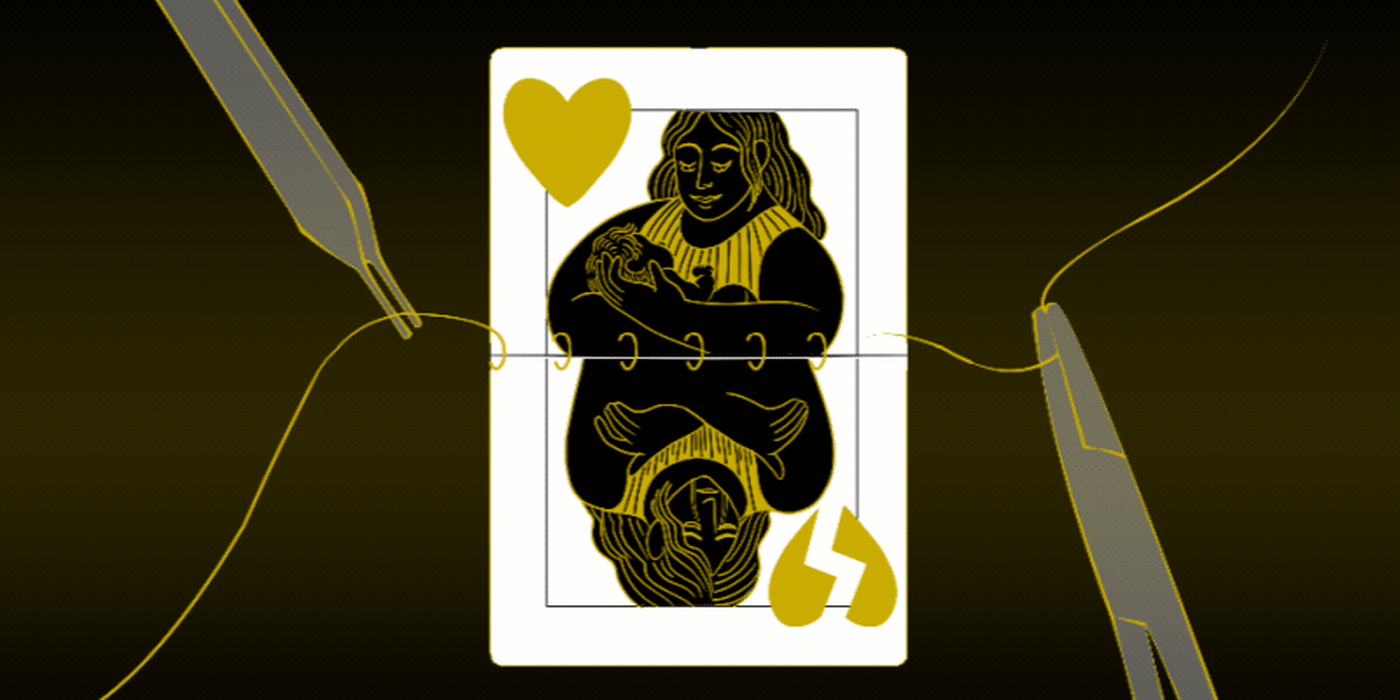The short story is this: something happened and a baby died. The longer version lives in my head as the singular worst day of my life. I am certain the same is true for the parents of that baby. Even though I had a previous logical awareness that this was something that could occur, it had never before seemed possible.
I was reeling. What followed were months and months of struggling and searching and questioning. I had a vague memory of something called second victim syndrome and, while looking for information about this, I realized I was actively experiencing this constellation of symptoms. Second victim syndrome, as first defined by Albert Wu in 2000, is a diagnosis somewhat equivalent to PTSD arising from the impact of adverse events or medical errors on health care providers. The patients involved in the harm are, of course, the first victim, and, while perhaps “victim” is not the best term to describe clinicians in these settings, the term acknowledges the ripples of suffering that arise from negative outcomes.
There are six stages of second victim syndrome. The stages do not necessarily occur linearly, but generally occur in a predictable fashion.
- Stage 1: Chaos and Accident Response. This involves initial management of emotions and the clinical situation at work, answering the questions of how and why the event happened.
- Stage 2: Intrusive Reflections. For this stage, the event plays over and over, involving reviewing details, wondering if or how it could have been prevented.
- Stage 3: Restoring Personal Integrity. This stage focuses on imagining what others will think and wondering if anyone will trust you again.
- Stage 4: Enduring the Inquisition. This calls into question continued employment, possible legal actions, and thoughts about reputation.
- Stage 5: Obtaining Emotional First Aid. This stage includes seeking assistance to help process the event.
- Stage 6: Moving On. This is the final stage of second victim syndrome and can resolve in three ways: quitting the practice of medicine altogether, surviving, or thriving.
The first few stages blur together for me. Initially, I had trouble focusing. I could not eat a full meal or sleep at night. I developed a spot in the center of my abdomen that felt like a vise grip being constantly twisted. At work, I wanted to be anywhere else. I cried every day. At night, I would lie awake playing the scenario over and over, wondering if things could have been done differently, if that would have mattered. I did not feel that patients should ever trust me again. My clinic patients would thank me for something and I would think to myself, If only they knew. A marketing team was reviewing ways to increase advertising of our practice and I thought, I should not be advertising myself as a physician in any way. Hard times also included speaking with the family, discussing the case through our typical review process, and working my next shifts on the labor floor. I never reached the point of feeling suicidal, but a constant refrain in my head was, I want to be nothing at all. These were my experiences of chaos and accident response, intrusive reflections, thinking about my integrity, and going through the discussions about the situation with other professionals.
Obtaining Emotional First Aid — stage 5 — came slowly. The numbness of the initial response faded and I knew I needed help to deal with the daily intense emotions. Coworkers reached out to me in support. I began to see a therapist.
The last stage, Moving On, seems by the title somewhat abrupt. But as I have experienced it, this stage seems to be indefinite. I have lived in this for years. I did not quit my job, but it seems to be that surviving versus thriving is, at least initially, a day to day definition. Not every day is a good one, even now. However, as time continues to pass and perspectives change, I have seen an evolution in the way I am able to think about this event.
First, there is the idea of forgiveness. While it may not be a formal stage of any syndrome, it seems that the most challenging part of something like this is forgiving oneself. There have been prayerful requests for forgiveness to the baby or the ether or some higher power, but I understand that I am truly the only person who can forgive myself. Here, at times I am thriving and at other times, merely surviving.
Second, there is the idea of serendipity. This is not to say that medical errors are not preventable or that we should just accept that bad things may happen. Rather, my suggestion here is that even though we would never wish it for ourselves or others, there can sometimes be deep meaning in suffering. A few months after this event, a therapist asked me, “Have you taken time to honor the soul of the baby?” I had not, but it occurred to me that on that day, when that small soul left and mine stayed, perhaps some was imparted to me in an undetectable cosmic way. Not by my choosing, but as an impact on the world, to not only help me to learn from that event, but to go forward and help other babies and their families.
Lastly, there is the idea of perfection. We have this expectation of ourselves, maybe most acutely in medicine, that we will never make a mistake. Logically, we are fallible humans and realize this expectation will never be met. It is hard to grapple with this fact. That maybe our best, at times, will not be good enough. It does not mean we have never done any good or that we never will again. It does not mean there are no silver linings to our clouds. It does not mean that we cannot forgive ourselves and thrive after even the worst possible thing has happened. Truthfully, perhaps sometimes things are just hard and bad and we will never see any good in them. But as imperfect humans and imperfect clinicians, we also have the ability to get up when we fall and walk bravely back to the patients who will most benefit from our hard-learned lessons.
The poet Mary Oliver in her work “Uses of Sorrow” writes the following: “Someone I loved once gave me a box/Full of darkness/It took years to understand/that this, too, was a gift.” In the end, I believe I will never actually “move on” as the last stage of second victim syndrome suggests. However, I have come to understand that while I cannot control the past and wish each day even now that things were different, I am an unquestionably better physician for what I have survived. Even as it is challenging, every patient we care for benefits from these dark moments in our past.
Read more about second victim syndrome here, here, and here.
Reflecting on your medical career, have you been a victim of second victim syndrome? Share in the comments.
Jill Moes is an obstetrician/gynecologist working in St. Paul, MN. She loves fireworks, weddings, books, thinking about life, and trying to keep up with her three busy boys. Dr. Moes is a 2021–2022 Doximity Op-Med Fellow.
Animation by April Brust







